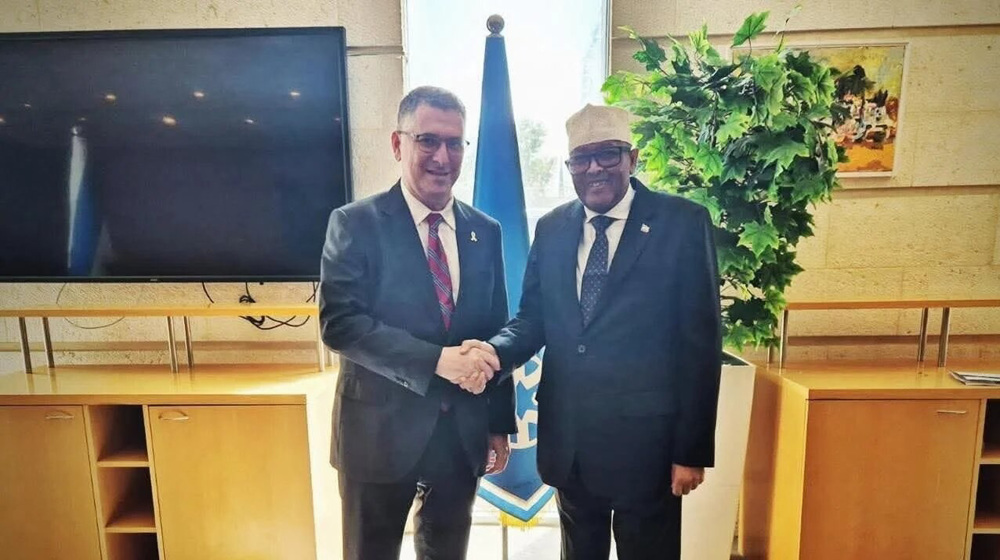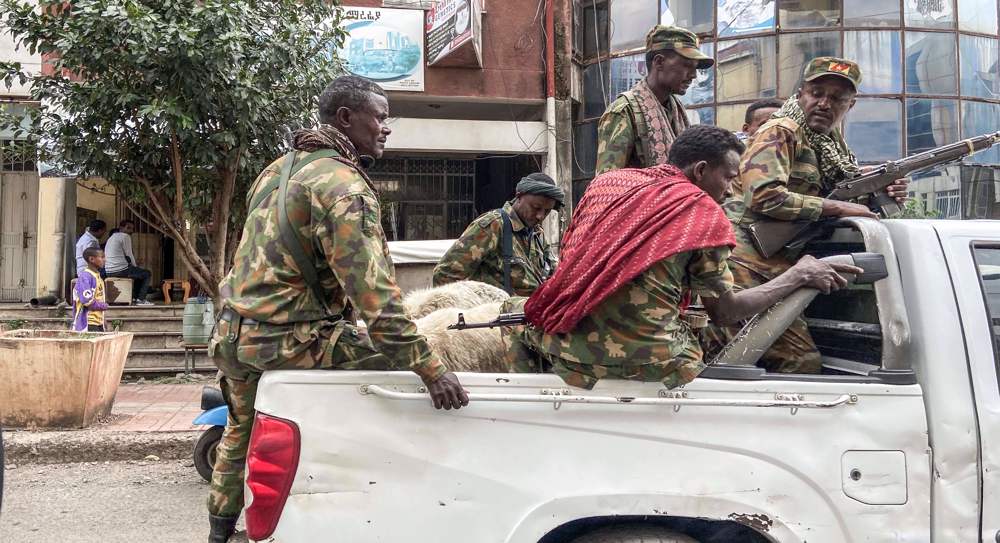Amnesty, UN, EU warn Ethiopia's warring sides: Do not target civilians
Amnesty International, the UN envoy for human rights and the European Union's top diplomat have called on the warring sides in Ethiopia's volatile Tigray region to avoid targeting civilians and violating human rights.
Amnesty sounded the alarm over the situation in Tigray on Tuesday after Ethiopian government forces said they were encircling the rebel-held regional capital, Mekelle, ahead of a threatened full-scale attack.
"As Ethiopian federal troops begin preparations to encircle Mekelle, Amnesty International reminds all parties that deliberately attacking civilians and civilian objects is prohibited under international humanitarian law, and constitutes war crimes," Deprose Muchena, Amnesty International's director for East and Southern Africa, said. "Indiscriminate and disproportionate attacks are also prohibited."
On Sunday, Ethiopian Prime Minister Abiy Ahmed gave the rebels in Tigray a 72-hour ultimatum to surrender peacefully before government troops launch an offensive on Mekelle.
The army threatened a "no mercy" tank assault on the whereabouts of the leader of Tigray People's Liberation Front (TPLF) in the city, warning civilians to leave while they could.
However, Debretsion Gebremichael, the leader of the TPLF, dismissed the ultimatum, saying his forces were "ready to die" defending their homeland.
Amnesty appealed to both sides of the conflict not to use heavy artillery in crowded areas, and not to use human shields or place military camps near civilian sites that could be targeted.
The United Nations (UN) also urged the Ethiopian government on Monday to provide protection for the civilian population affected by the fighting.
The UN Security Council held its first meeting on Tigray behind closed-doors on Tuesday.
Also on Tuesday, Michelle Bachelet, the UN High Commissioner for Human Rights, said, "The highly aggressive rhetoric on both sides regarding the fight for Mekelle is dangerously provocative and risks placing already vulnerable and frightened civilians in grave danger."
Her comments came after both parties to the conflict in Tigray claimed military successes.
A communications blackout and restrictions on reporting in the region have made claims from the two sides difficult to verify.
Tigrayans accused of massacre in Ethiopia war
Meanwhile, the Ethiopian Human Rights Commission, a government-affiliated rights watchdog, said in a report on Tuesday that at least 600 people — mainly of Amharic descent — had been slaughtered in a "rampage" in the Tigray town of Mai-Kadra on November 9.
The commission accused a local Tigrayan youth group called Samri of carrying out the massacre in the report, saying they "killed hundreds of people, beating them with batons/sticks, stabbing them with knives, machetes, and hatchets and strangling them with ropes."
The incident was first reported by Amnesty International.
The TPLF did not immediately comment but has previously denied involvement.
Tigrayan refugees from Mai-Kadra, who have fled to Sudan, have meanwhile blamed government forces for the killings there.
EU expresses concern, too
In a statement late on Tuesday, European Union (EU) foreign policy chief Josep Borrell also expressed concern about the ongoing fighting in Tigray region, saying the internal conflict was destabilizing the East African region.
"I expressed my great concern regarding increasing ethnic-targeted violence, numerous casualties and violations of human rights and of international humanitarian law," Borrell said, while calling on both sides to stop hostilities.
This is while Ethiopia has described the fighting as an internal law enforcement matter.
"We reject any interference in our internal affairs," the country's prime minister said in a statement on Wednesday.
Tigray has been engulfed in bloody fighting since November 4, when Abiy announced the launch of military operations against the regional government there.
The announcement led to a dramatic escalation of a long-running feud between the federal government and the TPLF, the region's ruling party, which dominated Ethiopian politics for almost three decades before Abiy assumed power in 2018.
Abiy, the winner of the Nobel Peace Prize 2019, has accused the rebel forces loyal to the TPLF of launching deadly attacks on a pair of federal military camps in the region. He has also accused the party of defying his government and seeking to undermine it.
The premier has so far spurned all calls by the UN, the African Union, and various countries to hold talks with the armed rebels in Tigray.
The fighting has reportedly claimed the lives of hundreds of people and displaced thousands of others, who have fled across Ethiopia's northern border into neighboring Sudan.
AFC Futsal Asian Cup 2026: Iran lifts championship trophy for 14th time
VIDEO | Trump’s Iran strategy: All bluster, no exit
Netanyahu’s son had violent confrontation with him, ex-bodyguard reveals
US, Israel, booed at Winter Olympics opening ceremony in Milan
Iran FM says venue of next round of nuclear talks with US could change
Iran riots and info war: When the ‘dead’ came back to debunk their own death stories
Gaza hospitals struggle to provide care to those waiting: Health ministry
Any adventure against Iran will spread war across region: Top general















 This makes it easy to access the Press TV website
This makes it easy to access the Press TV website